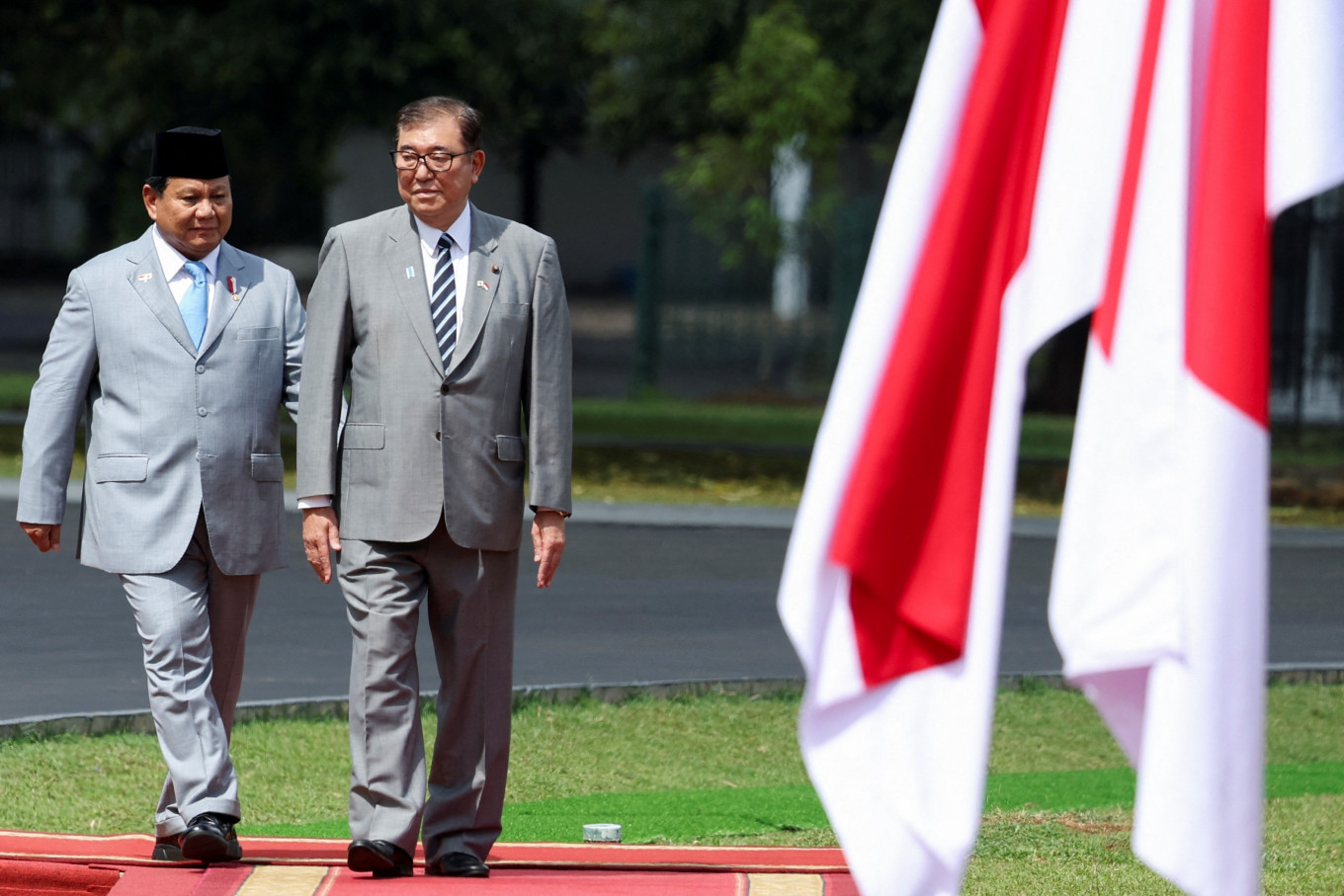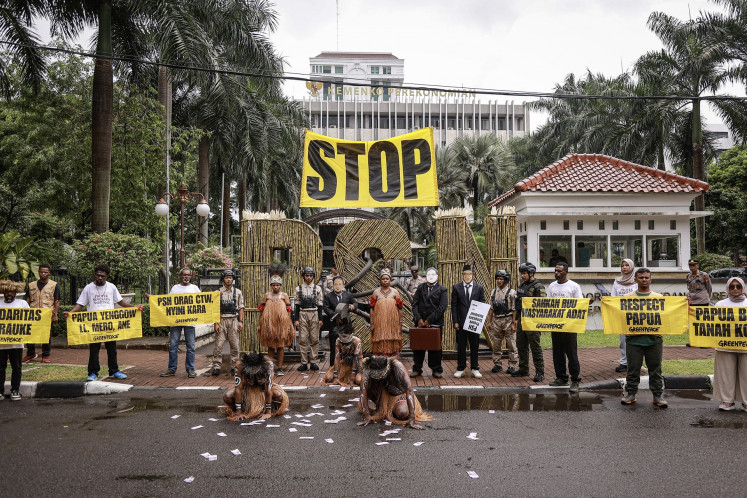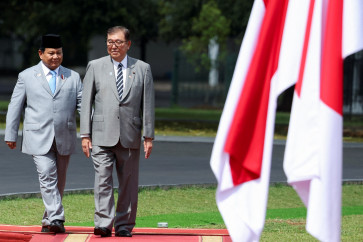Popular Reads
Top Results
Can't find what you're looking for?
View all search resultsPopular Reads
Top Results
Can't find what you're looking for?
View all search resultsPrioritizing agriculture in the Indonesia-Japan partnership
It will be a more strategic discussion if Indonesia is open to discuss what steps Japan took to transform its economy from a farming base into an advanced economy.
Change text size
Gift Premium Articles
to Anyone
T
he scheduled IJEPA (Indonesia-Japan Economic Partnership Agreement) ratification this year should also cover agriculture. The protocol now focuses only on trade of goods, services, electronic systems (e-commerce), movement of natural persons (MNP), cooperation, intellectual property and the government's procurement of goods and services. It will be a more strategic discussion if Indonesia is open to discuss what steps Japan took to transform its economy from a farming base into an advanced economy.
Indonesia and Japan have long recognized agriculture as a strategic sector. The signing of IJEPA in 2007 marked a major commitment to liberalize trade and deepen cooperation, including a plan to cut tariffs on 90 percent of agricultural products. The commitment should be expanded beyond the trade practices.
Nearly two decades later, however, the outcomes have been mixed. While overall bilateral trade between 2009 and 2017 surged by 155 percent and Indonesia’s exports rose by 101.7 percent. Japan benefited even more, with its exports to Indonesia jumping by 322.1 percent. Japanese firms have also made better use of the preferential scheme, with utilization rates of 60-76 percent for exports to Indonesia, compared to Indonesia’s 47-51 per cent for exports to Japan.
A closer look at agriculture reveals concerns for Indonesia. Over the past 15 years, Indonesia’s agricultural exports to Japan have actually fallen by 25.1 percent. Key products like palm oil, despite steady growth, have yet to break into Japanese households, and high-potential fruits such as bananas and pineapples show inconsistent export performance.
Most notably, Indonesian coffee exports to Japan dropped sharply, from US$123 million in 2008 to just $63 million in 2023, even though coffee enjoys a zero percent tariff under IJEPA. On the investment side, Japanese capital inflows into Indonesia have grown by over 20 per cent since IJEPA, reaching $14.3 million in the agricultural sector as of Q1 2024. However, this accounted for only 1.47 percent of Indonesia’s total FDI, a modest share for a sector both countries claim is of strategic importance.
The most traditional, vital and yet often overlooked stakeholders in the agricultural sector are small-scale farmers. Though often marginal in size, this group plays a significant role in ensuring Indonesia’s food consumption needs are met. In 2018 FAO estimated approximately 93 percent of Indonesian farmers were classified as small family farms.
When IJEPA was first established, both governments pledged to protect these farmers from adverse impacts. Yet nearly two decades on, a passive “do-no-harm” approach is no longer sufficient. What is urgently needed is a proactive, targeted strategy that channels meaningful investment and cooperation to empower smallholders and build their resilience.



















